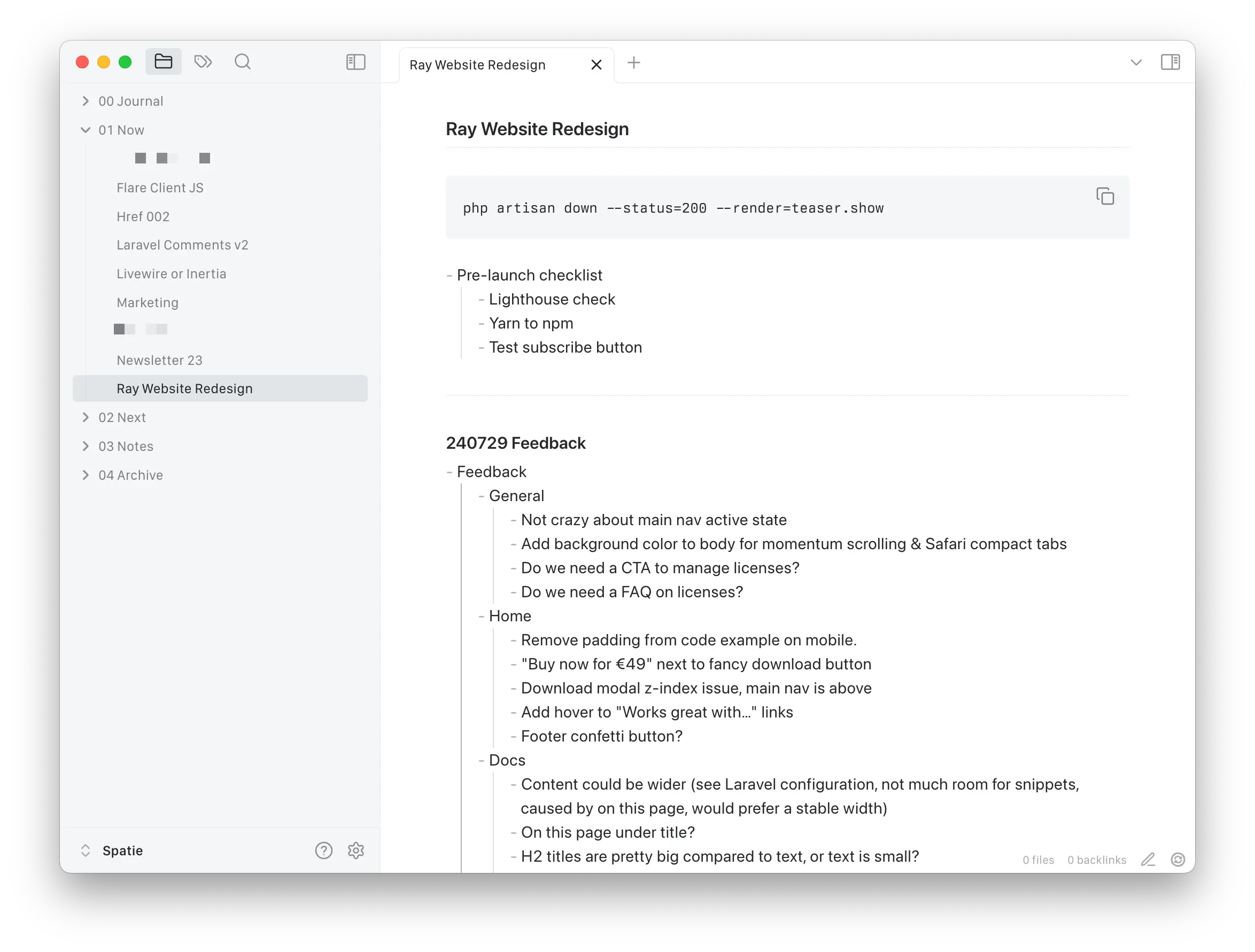How take notes + my Obsidian setup
For the past year, Obsidian has been my note-taking companion. I don't care about fancy features like backlinks, canvas… I like Obsidian because it's fast, minimal (up to you!), customizable, works with Markdown files, and has a good enough mobile app.
I've slowly grown towards a more consistent way of taking and organizing notes. While I'm using Obsidian, it's a system that can easily be ported to any other tool as long as you have something that resembles a filesystem.

